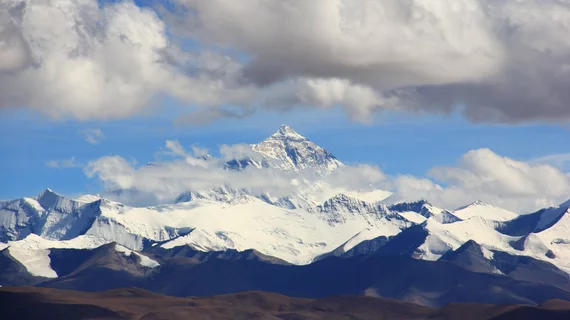Radiologist reflects on morbid climb up Mount Everest
Mount Everest has been in the news lately, as pictures of a climbers huddled in long lines have surfaced across the internet. Peter Lowry, a 38 year-old radiologist from Golden, Colorado, talked about his ascent up the mountain and how he’s dealing with the darker side of Everest.
Lowry, who had trained his entire life to complete the 10-week climb, is celebrating the achievement, but also spoke with the Colorado Sun about hiking passed climbers struggling to complete the ascent and waking around bodies of those who never made it.
“I thought I would see bodies from five, 10, 20 years ago. Not from this season. I did not mentally prepare to see people who had died less than 24 hours ago,” Lowry said in the report. “That brought, I think, an unexpected layer of complexity to how I was processing it, and to be honest, I’m not sure I’m done processing that.”
According to the Sun, Lowry reached the peak a day after four climbers died on the mountain. He credits his guide and Sherpas for helping his team recognize potential obstacles and delaying their summit for an easier climb.
Read the entire story below.

